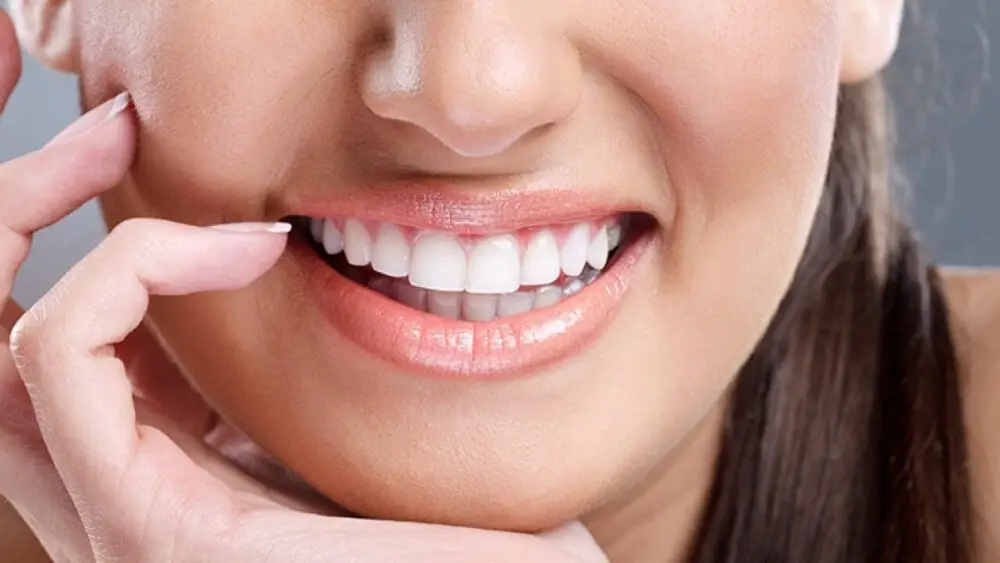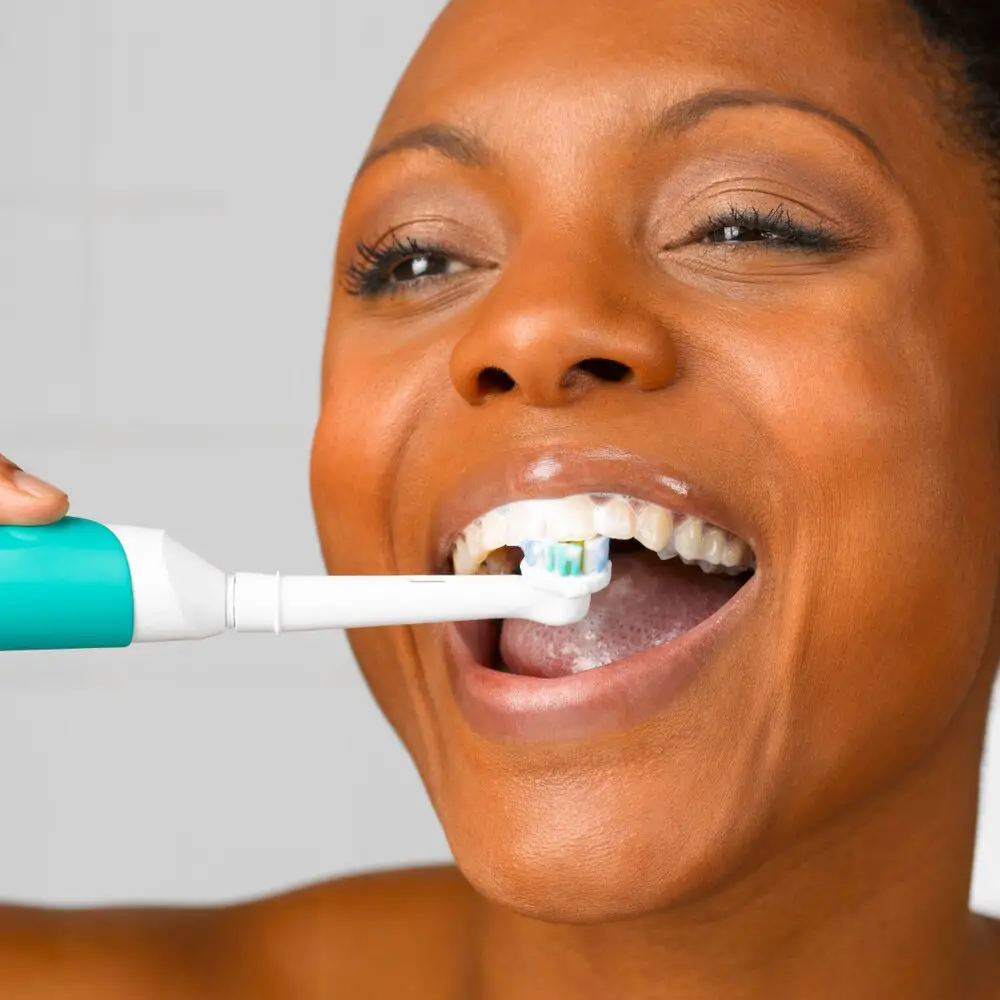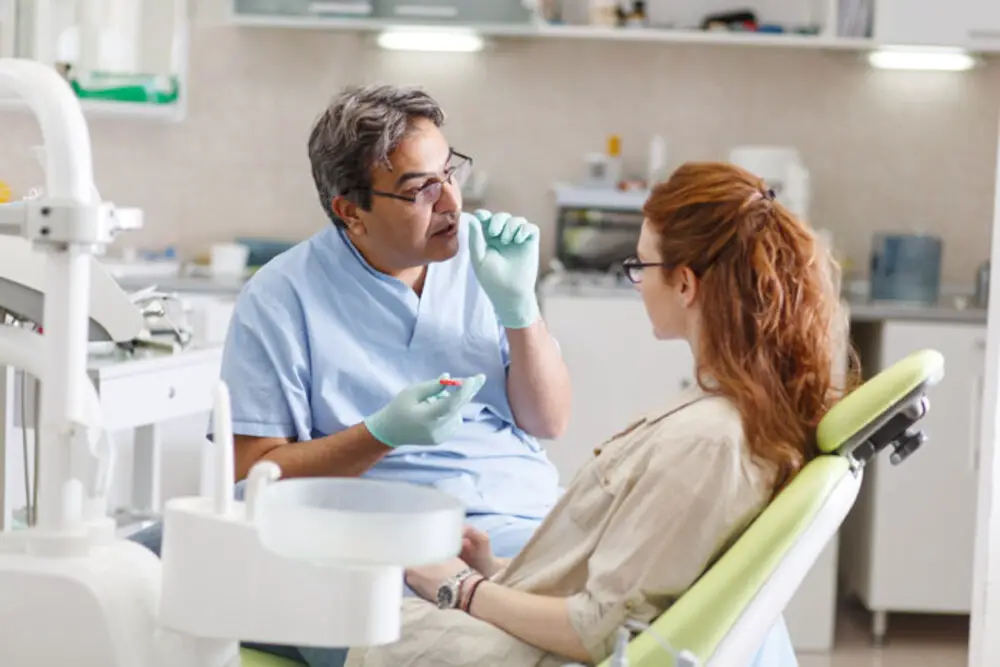Smoking Weed After Wisdom Teeth Removal: The Safe Timeframe You Need to Know

Wisdom teeth removal is a common dental procedure that many people undergo in their late teens or early twenties. The recovery process can be uncomfortable and painful, with swelling, bleeding, and sensitivity to hot and cold temperatures. To alleviate these symptoms, many patients turn to painkillers, ice packs, and other remedies. However, some individuals may consider smoking weed as a way to manage their discomfort. While marijuana is known for its pain-relieving and anti-inflammatory properties, smoking after wisdom teeth removal can be risky. There are several factors to consider, including the safe timeframe for smoking and the potential complications that may arise. Smoking weed after wisdom teeth removal can be tempting, especially if you are a regular user. However, it is crucial to understand the risks involved and take precautionary measures to avoid complications. Smoking can delay the healing process, increase the risk of infection, and cause dry socket, a painful condition that occurs when the blood clot in the socket is dislodged. Moreover, smoking can irritate the surgical site, leading to bleeding, swelling, and discomfort. Therefore, it is essential to know when it is safe to smoke and how to minimize the adverse effects. In this article, we will discuss the safe timeframe for smoking weed after wisdom teeth removal and provide tips for a smooth recovery.
Wisdom teeth removal is a dental surgical procedure in which one or all four wisdom teeth, the molars located at the back of the mouth, are extracted. This procedure is done to alleviate pain, prevent infection, and avoid damage to adjacent teeth. Wisdom teeth removal is often recommended for people whose wisdom teeth are impacted, meaning they are growing at an angle or are not emerging fully from under the gum line. The procedure is typically performed under local anesthesia, and patients are advised to rest for a few days afterward to allow for proper healing. While smoking weed after wisdom teeth removal may seem like a tempting way to alleviate pain and discomfort, it is important to wait until the proper timeframe has passed to avoid potential complications.
Following postoperative instructions is crucial for a successful recovery after any surgery, including wisdom teeth removal. These instructions are provided by the dentist or oral surgeon with the purpose of ensuring that the patient heals properly and avoids complications. In the case of smoking weed after wisdom teeth removal, it is important to follow the recommended timeframe to reduce the risk of dry sockets and other complications. Ignoring these instructions can lead to prolonged pain, infection, and delayed healing. It is essential to remember that every patient’s recovery process is unique, and following postoperative instructions is the best way to ensure a smooth and safe recovery.
Wisdom teeth removal is a common dental procedure that can be painful and uncomfortable. Patients often experience swelling, pain, and bleeding after the surgery. Smoking weed after wisdom teeth removal can further exacerbate these symptoms and delay the healing process. While smoking weed may provide temporary pain relief, it can also cause dry socket, a painful condition where the blood clot that forms after the tooth extraction is dislodged. It is important to wait at least 72 hours before smoking weed to ensure proper healing and avoid any complications. Patients may also consider other pain management options such as over-the-counter pain medication or prescription painkillers.
Risks of smoking weed after wisdom teeth removal

It is crucial to understand that smoking weed after wisdom teeth removal can be a risky affair. The extraction of wisdom teeth is a surgical procedure that involves the removal of one or more wisdom teeth. The procedure can take up to two weeks to heal, and during this time, it is essential to take care of the wound in the mouth. Smoking weed can increase the risk of complications and slow down the healing process. The inhalation of smoke can irritate the wound and lead to infection. The smoke can also cause dry sockets, which are painful and can delay the healing process. Moreover, smoking weed interferes with the body’s natural healing process, which can lead to complications. Weed contains THC, which can affect the immune system and make it difficult for the body to fight off infections. Smoking weed can also increase blood pressure and heart rate, which can lead to complications such as bleeding and swelling. Therefore, it is crucial to avoid smoking weed after wisdom teeth removal until the wound has healed completely. If you cannot resist smoking, consider using alternative methods such as edibles or tinctures that do not involve inhalation.
Dry socket is a painful condition that can occur after wisdom teeth removal. It happens when the blood clot that forms in the socket where the tooth was removed becomes dislodged or dissolves before the wound has fully healed. This can cause the bone and nerves in the area to become exposed, leading to severe pain and the risk of infection. Smoking weed after wisdom teeth removal can increase the risk of dry socket, as the smoke can irritate the socket and delay the healing process. It is important to avoid smoking weed, as well as cigarettes and other tobacco products, for at least 72 hours after wisdom teeth removal to minimize the risk of developing dry socket.
Delayed healing process is a common concern among patients who undergo wisdom teeth removal. It occurs when the body’s natural healing process is disrupted, leading to prolonged pain, swelling, and inflammation. Several factors can contribute to delayed healing, including smoking weed after the procedure. Tetrahydrocannabinol (THC), the active ingredient in marijuana, can interfere with the body’s immune response and slow down the healing process. In addition, smoking can introduce harmful bacteria and contaminants into the open surgical site, increasing the risk of infection and delaying the recovery. Therefore, it is essential to avoid smoking weed after wisdom teeth removal for at least 72 hours to ensure proper healing and minimize complications.
After undergoing wisdom teeth removal surgery, there are potential complications that can arise if proper care is not taken. One of the most common complications is dry socket, which occurs when the blood clot that forms in the socket where the tooth was removed becomes dislodged or dissolves before the wound has fully healed. This can cause intense pain, a bad taste in the mouth, and bad breath. Smoking weed after wisdom teeth removal can increase the risk of developing dry socket due to the suction created while inhaling. In addition, smoking weed can also interfere with the healing process, potentially leading to other complications such as infection or delayed healing. It is important to follow your dentist’s instructions and avoid smoking weed or any other substances until you have fully healed.
Safe timeframe for smoking weed

Smoking weed, just like any other substance, can have varying effects on the body. The safe timeframe for smoking weed after wisdom teeth removal is crucial to avoid any complications. Generally, it is recommended to wait at least 72 hours after the surgery before smoking weed. This is because smoking can cause dry socket, a condition where the blood clot in the socket is dislodged, resulting in pain and infection. Smoking can also cause inflammation and delay the healing process, which can lead to further complications. It is important to note that the safe timeframe for smoking weed after wisdom teeth removal may vary from person to person. Factors such as age, overall health, and the number of teeth removed can affect the healing process. It is best to consult with your dentist or oral surgeon to determine the appropriate timeframe for smoking weed after the surgery. In the meantime, there are alternative methods of consuming weed such as edibles or tinctures that can be considered to avoid any risks associated with smoking. Overall, it is important to prioritize your oral health and follow the recommended guidelines to ensure a safe and speedy recovery after wisdom teeth removal.
The healing process is a complex and dynamic series of events that occur in response to tissue damage or injury. It involves a coordinated effort between various cells, tissues, and organs to repair and restore the damaged area to its normal state. During the initial phase of healing, inflammation occurs, which helps to remove debris and dead cells from the site of injury. This is followed by the proliferation phase where new cells are generated to replace the damaged ones. Finally, the remodeling phase occurs, where the newly formed tissue is remodeled and strengthened to restore its function. While the healing process is a natural and essential response of the body, certain factors, such as smoking weed after wisdom teeth removal, can interfere with the process and potentially lead to complications.
The general timeline for healing after wisdom teeth removal can vary depending on the individual’s health, age, and the complexity of the surgery. However, in most cases, the initial healing process takes around 1-2 weeks, during which the gums may be sore, swollen, and bruised. The first few days after the surgery are usually the most uncomfortable, and patients are advised to rest, apply ice packs, and avoid smoking, drinking from a straw, or consuming hot or spicy foods. Over time, the pain and swelling should gradually subside, and the patient should start to feel better. However, complete healing can take up to several months, during which the socket gradually fills with bone and gum tissue. It’s important to follow your dentist’s instructions carefully and attend follow-up appointments to ensure a smooth recovery.
The healing time after wisdom teeth removal can vary depending on several factors. Firstly, smoking can slow down the healing process due to the chemicals in cigarettes that reduce blood flow and oxygen levels to the wound. Secondly, age and overall health can play a role in how quickly the body can heal. Younger and healthier individuals may heal faster than older or less healthy individuals. Thirdly, following post-operative instructions, such as avoiding strenuous activities or consuming certain foods, can impact the healing time. Lastly, the complexity of the surgery and the number of teeth removed can also affect how long it takes for the body to fully heal. It is important to follow all post-operative instructions provided by the dentist or oral surgeon to ensure a speedy and successful recovery.
After undergoing wisdom teeth removal surgery, it is essential to follow the post-operative instructions provided by the dentist. Smoking weed, in particular, can be detrimental to the healing process due to the heat, smoke, and chemicals present in the marijuana. It is recommended that patients wait at least 72 hours or three days before resuming smoking weed after wisdom teeth removal. This waiting period allows the blood clot to form and stabilize, reducing the risk of a dry socket. Additionally, smoking can cause inflammation, irritation, and infection in the surgical site, leading to complications. Therefore, it is crucial to be patient and prioritize healing over immediate gratification to ensure a smooth recovery process.
Alternatives to smoking weed

If you’re looking for alternatives to smoking weed after wisdom teeth removal, there are several options to consider. One popular alternative is edibles, which are food products infused with THC, the psychoactive component of cannabis. Edibles are available in a variety of forms, including gummies, chocolates, and baked goods. They provide a longer-lasting and more intense high than smoking, but they also take longer to take effect. It’s important to start with a low dose and wait at least an hour before consuming more to avoid taking too much. Another alternative to smoking weed is vaping, which involves inhaling vaporized cannabis oil. Vaping is less harsh on the lungs than smoking, and the effects are felt more quickly than with edibles. However, there are still risks associated with vaping, including lung damage and exposure to harmful chemicals. It’s important to use a high-quality vape pen and only purchase products from reputable sources to reduce the risk of harm. Additionally, it’s important to note that vaping can still cause dry socket, so it should still be avoided for at least 72 hours after wisdom teeth removal.
Avoiding smoking during the healing process is crucial for a successful recovery after any dental procedure, including wisdom teeth removal. Smoking, whether it be cigarettes or weed, can hinder the healing process by decreasing blood flow and oxygen to the affected area, delaying the formation of a blood clot, and increasing the risk of infection. Additionally, smoking can cause dry socket, a painful condition where the blood clot becomes dislodged from the extraction site. This can lead to prolonged pain and delay the healing process. It is essential to follow the dentist’s instructions carefully and avoid smoking for at least 48-72 hours after wisdom teeth removal to ensure a smooth and quick recovery.
If smoking weed after wisdom teeth removal is not an option, alternative methods of consumption such as edibles or tinctures can provide a safe and effective way to experience the benefits of cannabis. Edibles are a popular choice for those who want to avoid the harshness of smoking, and they come in a variety of forms such as gummies, chocolates, and baked goods. Tinctures, on the other hand, are a liquid form of cannabis that can be consumed sublingually or added to food or drinks. Both methods provide a discreet and convenient way to consume cannabis without the need for inhalation. However, it’s important to note that edibles and tinctures can have a longer onset time and stronger effects than smoking, so it’s essential to start with a low dose and wait for the effects to kick in before consuming more.
Alternative methods to manage pain after wisdom teeth removal may seem appealing to some patients, but they come with their own set of risks. For example, smoking marijuana can increase the risk of infection and dry socket, a painful condition that occurs when the blood clot in the extraction site is dislodged. Additionally, using other pain relievers, such as ibuprofen or acetaminophen, can lead to adverse side effects or interactions with other medications. It is important for patients to discuss all alternative pain management options with their dentist or oral surgeon to determine the safest and most effective approach for their individual needs.
Tips for a successful recovery

Recovering from wisdom teeth removal can be a daunting task, but with the right tips, it can be a successful journey. Firstly, following the dentist’s instructions is crucial for successful recovery. The dentist will provide medication and advice on how to manage pain, swelling, and bleeding. It is essential to take the medication as prescribed, especially the painkillers, to manage the pain effectively. Applying ice packs to the affected area for 15-20 minutes at a time can also help to reduce swelling and discomfort. Furthermore, maintaining proper oral hygiene is vital for a successful recovery. After the surgery, the dentist will provide instructions on how to clean the mouth to prevent infections. It is crucial to avoid smoking, using straws, and spitting, as these activities can dislodge the blood clot and delay the healing process. Rinsing the mouth with warm salt water can help to keep the mouth clean and promote healing. It is also essential to eat soft foods and avoid hard, crunchy, or sticky foods that can irritate the surgical site. By following these tips, a successful recovery after wisdom teeth removal can be achieved.
Following postoperative instructions is crucial for a successful recovery after any surgical procedure, including wisdom teeth removal. These instructions are designed to help patients avoid complications such as infection, bleeding, and delayed healing. In the case of smoking weed after wisdom teeth removal, it is especially important to follow the recommended timeframe for abstaining from smoking to avoid dry socket, a painful condition that can occur when the blood clot in the socket is dislodged. Patients should also follow instructions regarding pain management, diet, and physical activity to ensure a smooth and comfortable recovery. Failure to follow postoperative instructions can result in prolonged healing time, increased pain and discomfort, and even the need for additional medical intervention.
Managing pain and discomfort after wisdom teeth removal can be challenging, but there are a few tips that can help. First, make sure to take any prescribed pain medication as directed by your dentist or doctor. Additionally, applying ice to the affected area can help reduce swelling and alleviate pain. Eating soft foods and avoiding hot or spicy foods can also help prevent further irritation. Resting and avoiding strenuous activities can help your body heal faster and reduce discomfort. Lastly, practicing good oral hygiene, such as gently rinsing with salt water, can help prevent infection and promote healing. By following these tips, you can manage pain and discomfort after wisdom teeth removal and ensure a smoother recovery.
After wisdom teeth removal, it is imperative to follow a recommended diet and oral hygiene practices to ensure optimal healing. It is advised to stick to soft foods that are easy to chew and swallow, such as mashed potatoes, yogurt, and pureed soups. Avoid hard and crunchy foods that may irritate the surgical site or get stuck in the socket. Also, it is crucial to maintain excellent oral hygiene by gently brushing the teeth and rinsing the mouth with a saltwater solution to prevent infection and promote healing. However, smoking weed should be avoided for at least 72 hours post-surgery as it increases the risk of dry socket, a painful condition in which the blood clot is dislodged from the socket, delaying the healing process.
Effective communication is crucial when it comes to dental procedures, especially after wisdom teeth removal. Patients must inform their dentists or oral surgeons about their smoking habits, as this can significantly affect their recovery process. Smoking weed after wisdom teeth removal can cause complications such as dry socket, prolonged bleeding, and delayed healing. Therefore, it is essential to discuss the safe timeframe for smoking weed with your dental professional. Open and honest communication can help the dentist to understand the patient’s lifestyle and provide the necessary advice to avoid potential risks. It is important to prioritize your oral health and work together with your dentist to ensure a smooth recovery process.
In summary, smoking weed after wisdom teeth removal can lead to complications such as dry socket, which is a painful condition that can delay healing. It’s best to wait at least 72 hours before smoking to reduce the risk of dry socket. Alternatively, using edibles or other forms of consumption that don’t involve inhaling smoke can be a safer option during the healing process. Proper aftercare, including good oral hygiene and avoiding certain foods and activities, is crucial for a smooth recovery. It’s important to follow your dentist’s instructions and consult with them before resuming any smoking habits.
Following postoperative instructions is crucial for a successful recovery after any surgical procedure, including wisdom teeth removal. Patients who undergo this type of surgery must be aware of the importance of following specific instructions as they can help to minimize discomfort and reduce the risk of complications. Some of the most important instructions include avoiding smoking, eating soft foods, using ice packs to reduce swelling, and taking prescribed medications. Neglecting these instructions can lead to prolonged healing times, infections, and additional pain. Therefore, patients should take these postoperative instructions seriously and follow them rigorously to ensure a successful recovery and avoid any potential complications.
In conclusion, a successful recovery after wisdom teeth removal depends on a variety of factors, including avoiding smoking weed for at least 72 hours. While the temptation to smoke may be strong, it’s crucial to prioritize your oral health to prevent complications and ensure a quick healing process. Remember to follow your dentist’s post-operative instructions, including taking prescribed medication and avoiding hard foods. Additionally, practicing good oral hygiene habits such as gentle brushing and rinsing with saltwater can aid in the healing process. Overall, it’s important to prioritize your health and prioritize healing to ensure a successful recovery after wisdom teeth removal.
Conclusion

In conclusion, smoking weed after wisdom teeth removal is not recommended as it can lead to complications and slow down the healing process. It is important to wait at least 72 hours before smoking to minimize the risk of dry socket and other potential complications. Patients should also consider alternative methods of consumption such as edibles or tinctures to avoid any negative effects on their recovery. Ultimately, prioritizing proper aftercare and following the advice of your dentist or oral surgeon is crucial for a safe and successful recovery after wisdom teeth removal.






